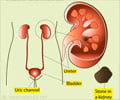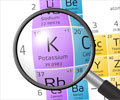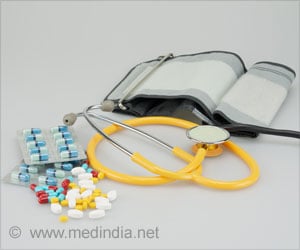Research indicates that older adults taking the antibiotic combination trimethoprim-sulfamethoxazole (TMP-SMX) are at increased risk of elevated potassium levels.

The study was based on 300,000 older adults in Ontario, Canada, who were taking beta-blockers—a widely used class of blood pressure drugs. From this group, the researchers identified 189 patients who were hospitalized for severe hyperkalemia shortly after starting TMP-SMX or other antibiotics commonly used for urinary tract infections.
"Hyperkalemia is a potentially deadly adverse drug reaction, and TMP-SMX is one of the most commonly prescribed antibiotics in North America," Weir explains. "TMP-SMX can decrease the kidney's ability to remove potassium from the body. Potassium plays an important role in regulating heartbeat, and severe episodes of hyperkalemia can cause fatal disturbances in the heart rhythm."
Patients receiving TMP-SMX were more likely to develop dangerously high potassium levels, the study found. Weir says, "The risk of severe hyperkalemia is five times higher in patients prescribed TMP-SMX compared to those prescribed amoxicillin—another popular antibiotic to treat simple bladder infections."
Very few of the patients taking TMP-SMX underwent subsequent blood testing of their potassium level. "Increasing this type of testing represents an avenue to potentially decrease the risk of hyperkalemia associated with TMP-SMX," Weir adds.
Beta-blockers and TMP-SMX can interact, so the researchers had suspected that patients taking both drugs would be at increased risk of hyperkalemia. However, the increase in hyperkalemia with TMP-SMX did not appear any greater in patients who were also taking beta-blockers.
The study had some important limitations—as in all observational studies, the patients were not randomly assigned to different antibiotics. "Also, data regarding factors that can predispose to hyperkalemia, such as diet and levels of physical activity were not available to us," notes Weir. He points out that the results may not be applicable to younger patients.
Source-Eurekalert
 MEDINDIA
MEDINDIA




 Email
Email









